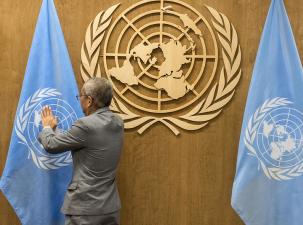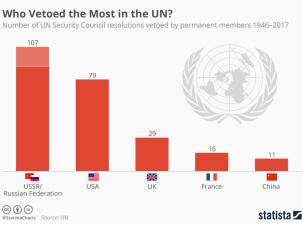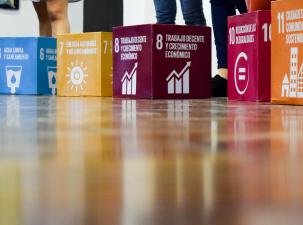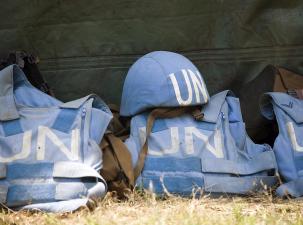United Nations - UN
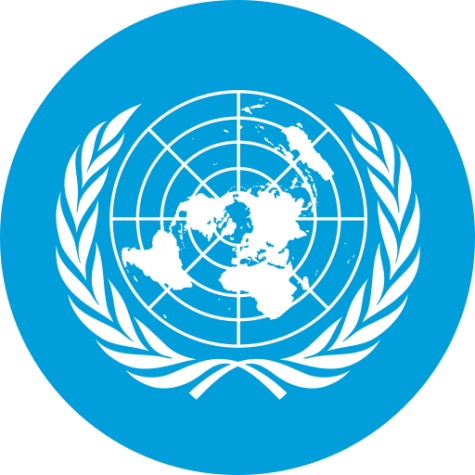
➡️ THE UNITED NATIONS – Role in Global Governance & the Need for Reform
The United Nations (UN) is the largest intergovernmental organisation in the world. It was founded in 1945 to promote peace and security, facilitate greater cooperation between members, and address various global challenges.
The UN was created after World War II to prevent further war and conflict, the union now consists of 193 member states. The Charter is the founding document of the United Nations, it outlines the major principles of international relations and prohibits the use of force. UN member states are bound by this treaty and it is an important instrument of international law.
Jump straight to our guide on the ➡️ United Nations
Explore our comprehensive resources on -
-
The need for UN Reform
-
Trump and the United Nations
-
Secretary-General António Guterres
-
The International Court of Justice (ICJ)
-
The Sustainable Development Goals (SDGs)
-
The Gaza War and Ukraine War
“The United Nations is like a spade; it is not self-operating. It is what we make of it, for purposes that we can find in common with our neighbours in the world” - Adlai Stevenson
This year marks the 80th anniversary of the UN and will be celebrated at the 80th session of the UN General Assembly under the theme - Better together: 80 years and more for peace, development and human rights. The event will launch the UN80 Initiative, an opportunity for UN reform through streamlining operations, boosting impact, and increasing relevance.
Please share our post on Twitter / X, Bluesky, Instagram, Facebook, and LinkedIn ;-)
German speakers should visit our partner site Bessere Welt Info for over 500 links on Vereinte Nationen.
*****
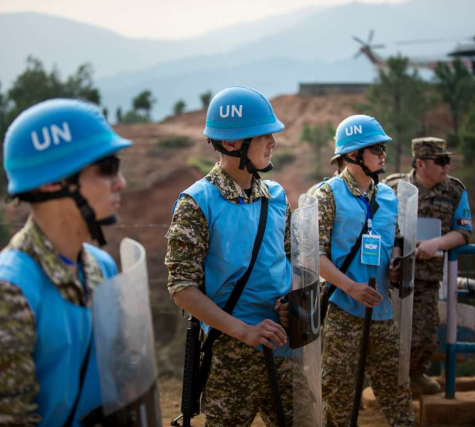
What are the Main Goals of the United Nations?
Maintaining international peace and security is the fundamental objective of the UN. This includes the prevention of armed conflict, peacekeeping, and conflict resolution which is carried out primarily through the UN Security Council and UN peacekeeping missions. They also promote sustainable development and economic cooperation between countries to combat major global issues such as poverty, hunger, and the promotion of healthcare and education. Below we highlight some of the main specialised agencies of the UN:
UN & PEACEKEEPING - The UN currently has 90,000 peacekeepers who operate in 12 missions around the world. Their aim is to achieve long-lasting peace, support political processes, protect civilians, and guarantee ceasefires. They have an annual budget which is less than 0.5% of total global military spending.
UN & DISARMAMENT (UNODA) - As part of the UN’s efforts to establish peace, one of their highest priorities is multilateral disarmament and arms control. They also give high priority to the elimination of nuclear weapons, which is currently the greatest threat to mankind. They are working towards the abolishment of chemical and biological weapons, greater regulation of missiles and conventional weapons, and the banning of cluster munitions and landmines. Through the Arms Trade Treaty the UN promotes stricter arms regulations and greater responsibility in international arms transfers.
UN & DEVELOPMENT (UNDP) - The work of the UNDP is primarily concerned with the implementation and monitoring of progress towards the 17 Sustainable Development Goals. The philosophy of Agenda 2023 is ‘leave no one behind’ and emphasises the importance of inclusion and equality in the creation of a sustainable world.
The goals cover a wide range of issues, including poverty and hunger eradication, gender equality, clean water and energy, education, climate and environmental protection, access to quality healthcare, decent working conditions, and peace. Make sure to check out our excellent blog on the Limitations and Deficits of the SDGs.
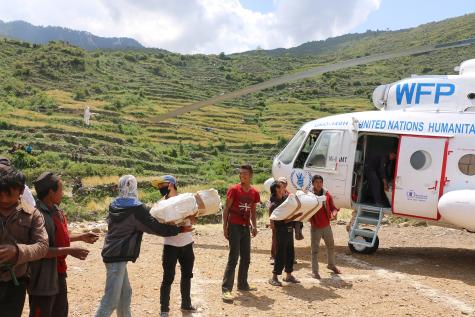
UN & HUMAN RIGHTS (OHCHR) - The promotion and protection of human rights forms a key part of the UN’s mission. These broad range of rights includes civil, cultural, economic, political, and social. Some of the biggest issues in human rights currently include gender equality, freedom of speech, press freedom, religious freedom, and protection from discrimination and torture.
The OHCHR are committed to providing humanitarian assistance during dangerous and desperate situations such as in conflict and the aftermath of natural disasters. Groups like the United Nations Refugee Agency (UNHCR) and the World Food Program (WFP) help by providing food, medical care, protection, and education.
UNICEF – Children are incredibly vulnerable and are always the first to suffer in times of disaster, war, poverty, and crisis. UNICEF work hard to promote gender equality and the rights of boys and girls across the world.
The Children's Fund supports the wellbeing of children by providing services such as education, healthcare, and protection from exploitation and violence. The United Nations Population Fund (UNFPA) is a sexual and reproductive health agency which supports family planning, maternal healthcare, body autonomy, combating gender inequality, gender-based violence, child marriage, and FGM.
UNESCO - The United Nations Educational, Scientific, and Cultural Organization is committed to peace and international cooperation through the promotion of education, science, cultural diversity, communication, and protecting humanity's heritage. Currently there are 1,199 World Heritage Sites globally, their status brings them international attention, increased tourist revenue, funds for restoration, preservation, and training for staff.
THE WORLD HEALTH ORGANISATION (WHO) – WHO is the UN specialised health agency responsible for the promotion of health and preventing and responding to disease outbreaks including HIV/AIDS, Malaria, and Covid-19. They are important advocates for universal healthcare and set international health standards, collect essential data, and work as a forum for scientific discussions.
Current priorities for the WHO include food security, nutrition, healthy diet, cancer, occupational health, substance abuse, and the next pandemic.
UN & ENVIRONMENT (UNEP) - Alongside the SDGs, the UN has a separate agency which is the leading global authority on the environment. Their work focuses on the top three threats to our environment – climate change, nature and biodiversity loss, and pollution. They are doing this by assisting countries with the energy transition, strengthening environmental law and policy, and the safeguarding of our precious ecosystems.
UN GLOBAL COMPACT - The Global Compact is an initiative which replaced the UN’s work with TNCs. It was set up in 2000 and is a non-binding pact related to businesses and their commitment to the SDGs. The project has many overlaps with the strategy of corporate social responsibility (CSR) in that companies are encouraged to adopt sustainable policies as well as working in line with human rights, labour rights, environment and anti-corruption practices.
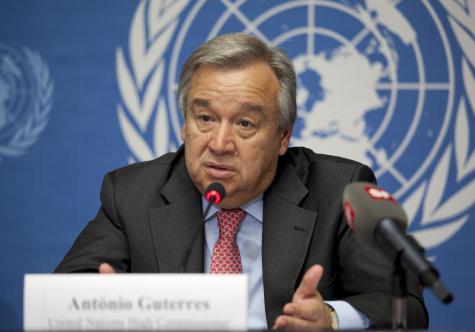
UN Bodies & Structure
The General Assembly (UNGA) - The main body of the UN consists of representatives from all 193 member states. Each member has one vote. The General Assembly is a forum for discussing global issues and formulating recommendations their decisions are not legally binding. It also elects non-permanent members of the Security Council and the Secretary General.
The Security Council (UNSC) - The principal body responsible for maintaining international peace and security. It has 15 members, including five permanent members with veto power (China, France, Russia, the United Kingdom, and the United States) and ten non-permanent members which are elected every two years. The Security Council can make decisions on sanctions, ceasefires, peacekeeping, and other measures to peacefully resolve conflicts.
The Economic and Social Council (ECOSOC) - Responsible for coordinating the economic and social work of the UN and its specialised agencies. It promotes economic development and social progress, formulates political recommendations and promotes human rights.
The International Court of Justice (ICJ) - The main judicial body of the UN is based in The Hague. They make decisions on legal disputes between states based on international law and gives opinions on legal questions raised by the General Assembly or the Security Council.
The Secretary-General - Head of the UN who is appointed by the Security Council on the recommendation of the General Assembly. The Secretary General is responsible for the administration of the UN and the implementation of global political objectives. The current Secretary General is António Guterres, a Portuguese politician and diplomat.
The United Nations at 80
The UN marks its 80th anniversary in 2025. By launching the UN80 Initiative at their 80th session of the UN General Assembly, Secretary-General António Guterres has addressed the urgent need for UN reform and a renewed commitment to the SDGs and global cooperation.
On September 22nd, Heads of State and government will gather to celebrate the achievements of the UN and reflect on the road ahead. The organisation is currently facing some of its biggest tests under high political tensions, low trust, and unprecedented needs. Israel's war on Gaza, the Russian invasion of Ukraine, and the conflicts in Sudan, Yemen and the DR of Congo have highlighted the UN's limitations.
The three objectives of the UN80 are as follows:
-
Improve internal efficiency by streamlining operations and relocating functions to lower-cost regions.
-
An examination and updating of the UN's mandate documents, including a prioritisation of the organisation's aims and missions.
-
Implement structural changes and realignment across the entire UN system to simplify operations.
Experts have commented that the initiative may be a response to budget shortfalls and is essentially a cost-saving measure. Either way, the UN requires an overhaul, and a more inclusive, relevant, and responsive multilateral approach will be welcomed by many.
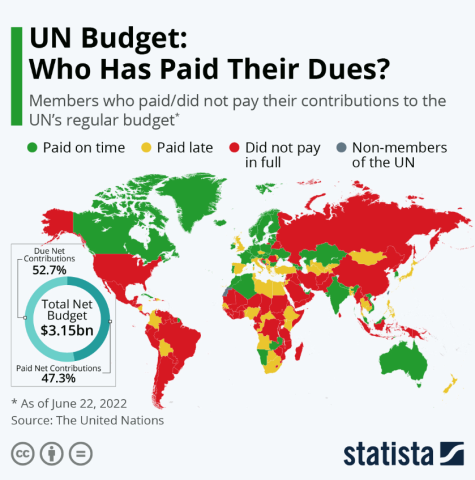
Criticisms & the Need for UN Reform
VETO POWER
One of the biggest issues within the UN is the power structure within the Security Council. Only the five permanent members hold the power to veto – U.S.A, UK, China, France, and Russia. These five permanent members are all also nuclear states. Bias and self-serving motives result in many important decisions being blocked. The U.S. recently used their veto to prevent a ceasefire in Gaza and have used it in the past to carry out their war in Iraq unhindered. Russia used their veto in the ongoing invasion of Ukraine, and China has used it in relation to Taiwan. These veto rights render the UN powerless in their attempt to mitigate conflict and bring about peaceful solutions.
REPRESENTATION OF STATES
Criticism of the UN often centres around unfair representation of states. For example, Asia has a population of 4.5 billion yet only holds one permanent seat. 3 of 5 of the permanent seats are held by Western nations which creates an unfair balance regarding global issues. Africa and Latin America do not hold a permanent seat despite their huge population size.
Within the General Assembly all member states are given one vote regardless of their population size. This means that China and Palau despite their huge population difference hold the same level of weight in their decision making. This leads to a distorted distribution of power and an underrepresentation of populations.
States are also represented by their own governments, which means that critical voices and the opinions of opposition parties are not heard. Also the General Assembly only serves to make recommendations to the Security Council and so are unable to make decisions themselves.
HUMAN RIGHTS ISSUES
Other criticisms include the UN’s effectiveness at managing human rights violations. Their lack of resources and inability to enforce change has led to many countries failing to comply with international agreements. The Human Rights Council (HRC) has been accused of holding some countries to higher standards than others and turning a blind eye to some serious human rights situations.
This bias has been noted in the case of Israel which is held under a separate item of the HRC agenda than all other countries. Since 2006 Israel has been the focus of 103 out of 280 condemnatory resolutions far surpassing that of Afghanistan, Myanmar, North Korea and Syria. In 2022, only Russia was condemned as many times as Israel by the HRC. Other countries with poor human rights records such as China, Cuba, Pakistan, Saudi Arabia, and Zimbabwe have never been condemned by the HRC.
Perhaps the worst oversight is China whose human rights abuses have been widely documented by human rights organisations. Its citizens are subjected to censorship, arbitrary arrest, detention and they are denied religious freedom, freedom of speech and freedom of the press. Despite these clear violations, the HRC has either been unwilling or unable to condemn China.
The UN itself has issues concerning human rights violations by its own employees. Several studies from Kosovo, Sierra Leone, Haiti, and Cambodia revealed a connection between the deployment of UN missions and an increase in forced prostitution and human trafficking.
BUDGET
The UN is financed by contributions from each member states. Despite insurmountable global problems such as the refugee and migrant crisis, the covid-19 pandemic, the climate crisis, the global food crisis, rising inflation, multiple economic crises, coups and the breakdown of stability in all corners of the world, the UN budget remains the same.
For perspective, the entire 2023 budget was just $3.4 billion, this is almost $2.5 billion less than the budget for the New York City police department. How can the UN expect to promote peace and security with this budget? Especially when we consider that total global military expenditure in 2022 reached a new high of $2,240 billion!
The UN often struggles with financing, which puts its missions in jeopardy. The U.S. is currently in arrears after four years of nonpayment during the Trump administration. In 2019, U.N. member states owed nearly $2 billion in peacekeeping funds, with the United States responsible for more than a third of that amount. The 2026 budget has been reduced by $500 million after the U.S. announced significant cuts to its foreign aid funding. Equating to a 15% reduction in resources, the cuts will also result in the loss of 3,000 jobs.
Since its founding the U.S. has been the largest donor to the UN, as such they hold a certain level of influence over its operations. Many smaller states say that the permanent seat holders who make the decisions on which missions to pursue, should be the ones financing them. Other criticisms of the UN include its lack of effectiveness, its backing of controversial policies, and its promotion of globalisation.
Tip: Our guide on the U.S. under Trump
CAN THE UN BE REFORMED?
Debate over reform has been widespread for many years. Under-funding, mounting bureaucracy, lack of unity, and disagreements among states have led to the decreasing effectiveness and relevance of the UN.
Greater inclusivity needs to be become a priority in any reform plans, as well as transparency, and increased cooperation. The 5 permanent members however seem to have little desire to ignite these changes. Additional permanent seats would help to solve the issue of representation but would take power away from the current 5. Mechanisms must also be created to promote the participation of civil society, opposition parties, and NGOs in decision-making to ensure a fairer outcome.
In regard to the veto power of the 5 permanent seat holders, reformists suggest that nations be stripped of their ability to veto matters relating to the world's primary threats – climate change, infectious disease, and nuclear weapons.
There are also calls for new consortiums on virus prevention and biodiversity, as well as greater information sharing between nations and organisations. The establishment of a world environmental organisation would be a positive step towards monitoring and limiting the effects of the climate crisis on a global scale.
Regarding financing, member states should commit to making their UN contributions regularly and on time to ensure the financial stability and functionality of the organisation. A review of the contribution structure would be beneficial to ensure that the financial burden is distributed fairly, with countries contributing according to their gross domestic product and economic performance.
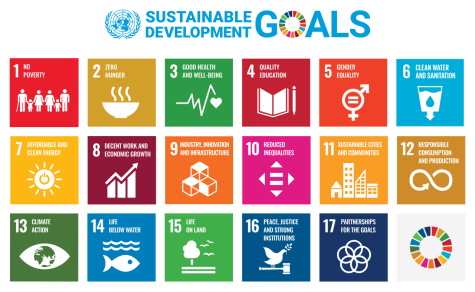
Better World Info supports a critical reassessment of the SDGs regarding their shortcomings in areas such as the arms trade, corruption, refugees, democracy, and digitalisation. Many of the SDGs are currently seriously behind target, or even in reversal. Infact, we are on track to meet only 12% of targets by 2030. The 2023 Sustainable Development Goals Report revealed that progress on 50% of the targets is weak, and 30% have either stalled or actually gotton worse.
Many of the current failings are down to the unwillingness of states and large commercial companies which hold the biggest influence to implement and monitor the goals. These states coincidently are the same ones who hold all the power in the UN.
“The United Nations is not failing. We are collectively failing its Charter and ideals through the decisions we make or fail to make. When we are ready, and collectively decide to fulfill the ideals of the UN, we will see the conventions, reports and structures as invaluable tools for getting there” - José Ramos-Horta, President of Timor-Leste.
Work in Progress. Suggestions and collaboration welcome.
Author: Rachael Mellor, 21.11.23 (Updated 24.09.25) licensed under CC BY-SA 4.0
For further reading on the United Nations see below ⬇️
Info on United Nations - UN
- UN News[46]
- UN Resources[44]
- UN Central Bodies[29]
- UN Platform - Our Links ![4]
- Sustainable Development Goals (SDGs) - Post-2015
- Millennium Development Goals (MDGs)
- UN Secretary-General selection 2016[11]
- UN Financial Crisis & USA Debt[26]
- Prohibition on the Use of Force[17]
- UN Reform[108]
- UNESCO - Paris[56]
- UNICEF - Children[114]
- WHO - Health[81]
- UN & NGOs[37]
- UN & Peacekeeping[87]
- UN & Disarmament - UNODA[47]
- UN & Environment - UNEP[119]
- UN & Human Rights - OHCHR[93]
- UN & Development - UNDP[33]
- UN & TNCs[19]
- UN Programs[5]
- UN Training and Research[19]
- UN related organizations[24]
- Global Compact[35]
- Selected Articles[140]
- UN Charter (1945)[11]
- Uniting for Peace[81]
- Security Council[1]
- Other UN Info[25]
Hot Topics
Twitter list
Tweets by @BetterWorldInfo/lists/United-Nations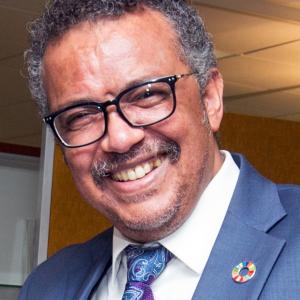
Hero of the Month
Tedros Adhanom Ghebreyesus
The Ethiopian biologist and immunologist is the current General Director of WHO and the first in this position from Africa. Before that, he was Ethiopian Minister of Foreign Affairs and Health. He established an universal health insurance and improved access to healthcare in Ethiopia. He also chairs the Global Fund to fight AIDS, Tuberculosis and Malaria.
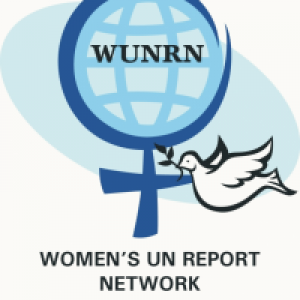
Featured Organisation of the Month
WUNRN
The Women’s UN Report Network addresses the human rights, oppression, and empowerment of women and girls all over the globe. They provide different Tools for Gender Advocacy for example one of the most expansive and active Gender ListServe’s in the world. WUNRN also regularly organizes events on women’s and girls’ issues and rights at the UN.
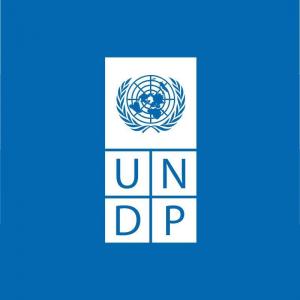
Featured Online-Resource
UNDP
The United Nations Development Programme runs a sustainable development blog with articles and essays by experts working in over 170 countries. Mainly focusing on perspectives on human rights, climate change, sustainability or health. They also publish a selection of studies and research projects along with there annual report about development issues around the globe.
